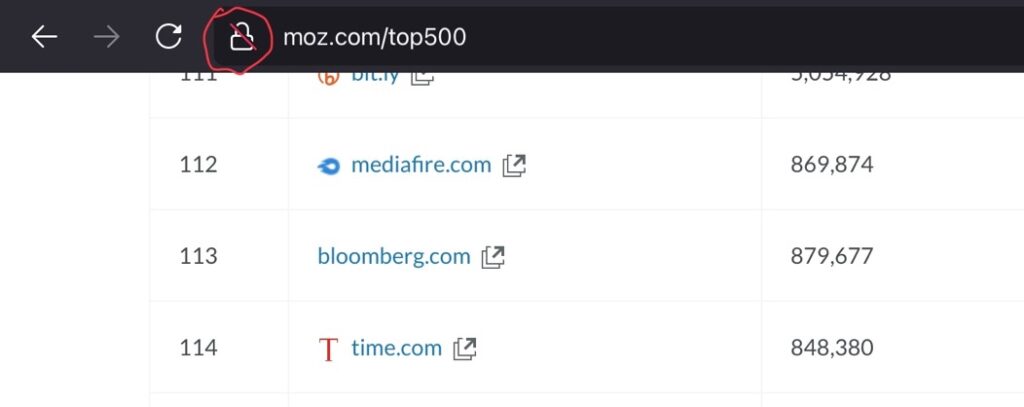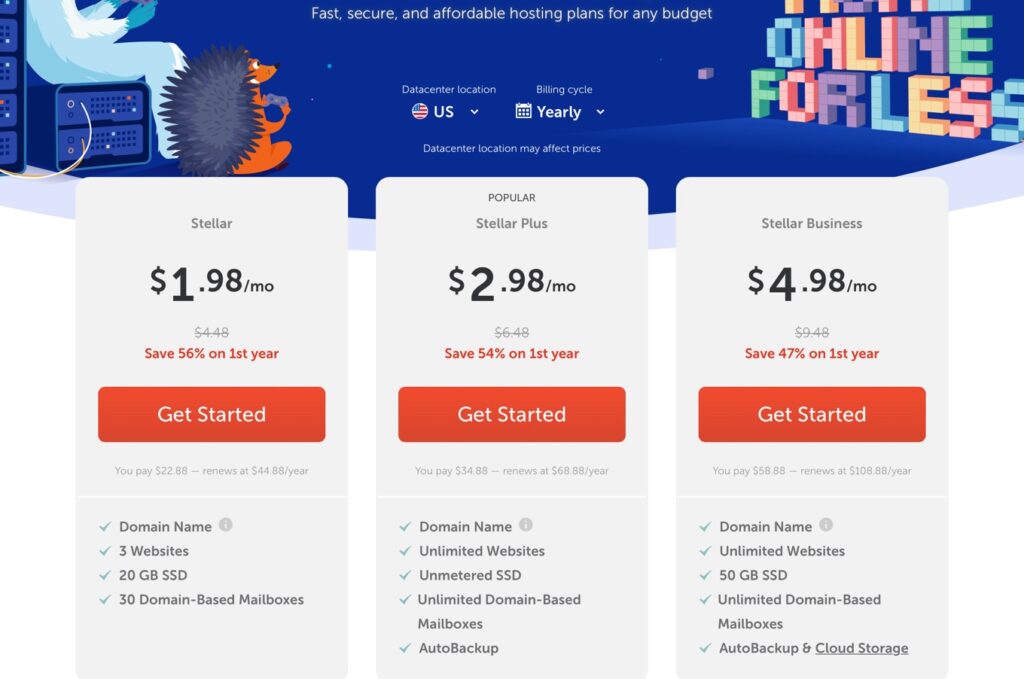
Web Hosting
With a domain name bought and paid for, the next thing you’ll need is a hosting company. Why do you need hosting? Well websites are basically just a bunch of webpages that are connected to eachother. Those pages need to exist on a computer somewhere. In the internet world, those computers are called servers. So a hosting company provides those servers for you. They have facilities that house the server and what you’re doing when you use a hosting company is you’re essentially leasing space on their servers. Think of it like an apartment building. Your website is the apartment and the hosting company is the building. Many hosting hosting companies even have facilities in multiple cities, so if there’s a fire at one location, they still have your files backed up at another location in another city (keeping your website online).
I’ve used lots of hosting companies over the years and just like with domain names, I’ve settled on one company that I now use for all of my websites: NameCheap. They offer some of the cheapest rates, websites load fast with them (which is important for SEO), they give you access to cPanel (I’ll go over that in the next lesson), and they provide SSL certification for free! With NameCheap, you can also bundle your hosting and domain name together (making both a bit cheaper). See more on that here.
You can also read my blog where I compare GoDaddy vs NameCheap, here.
SSL Certificates
SSL certification refers to the “S” in “https”. It makes your website secure for the user. When a user lands at your website and you have SSL (your site begins with “https”), they typically see some sort of “lock” icon…

If a user lands at a website with no SSL, they will likely see a “broken lock” or something similar (depending on their browser). I think Google Chrome even shows a stern warning not to trust the site.

This, or course, looks very bad to the user and your potential customers. Especially if you’re doing an e-commerce site. No one is going purchase any products and enter their credit card information when they see that warning. So luckily, NameCheap includes free SSL certification for all their customers. I have clients that use GoDaddy for their domain name registration and they are charged over $100 for SSL. Once again, see more differences between GoDaddy and NameCheap here.
SSL certification is also important for SEO. Google prefers websites that are secure and will rank them higher in search results over unsecured websites. And if you ever decide to do any advertising with Google, they now require websites to start with “https”.
NameCheap’s Pricing Packages
You can see in the image below, that they have very competitive pricing, although introductory. But you can lock that rate in for the first year. I always recommend to clients that they should purchase the “Stellar Plus” plan because you get unmetered SSD (meaning you don’t have to worry about storage space). You also get auto-backups, unlimited email accounts (mailboxes), and you can have unlimited websites with your plan. You’ll probably only need one website but if you do have multiple businesses or other projects, you can use the hosting plan for them all. You’ll just have to know how to set them up as “sub-websites” (for lack of a better term) that all exist underneath your main website (but as completely separate sites). But that’s a topic for another lesson…

Note that NameCheap also offers WordPress Plans. I do recommend installing and using WordPress to build your site with but don’t purchase any of the WordPress plans. They cost more, and more importantly, they don’t give you access to cPanel (which is something you’ll need for SEO, connecting your domain name, managing redirects, managing email addresses, and other technical things). I’ll explain all that in future lessons. So just buy the Stellar Plus plan under their “Shared Hosting” heading of plans.
So that’s hosting! At this point you should have your domain and a hosting package. In the next lesson, I’ll teach you:
- How to connect your domain name and web hosting together.
- How to properly use/set up the free SSL.
- How to create email accounts.
- How to add multiple websites to your hosting package (if you wish).




